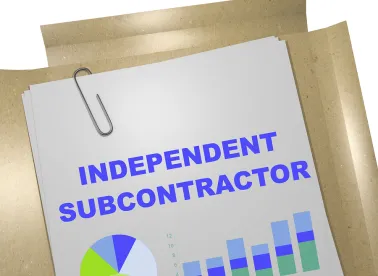We invite you to view Employment Law This Week® - a weekly rundown of the latest news in the field, brought to you by Epstein Becker Green. We look at the latest trends, important court decisions, and new developments that could impact your work.
This week’s stories include ...
1. Legislation Introduced to Encourage Mobility
Our top story: New legislation was introduced in Congress on employee mobility. Congressional Democrats have introduced bills in both houses targeting practices that curb competition between employers for workers. The legislation would effectively ban no-poaching agreements, which are, in most cases, already considered a criminal antitrust violation by the Department of Justice. But the bills go further to ban anti-competitive corporate mergers and prohibit non-compete agreements, except in limited circumstances. Jonathan Brenner, from Epstein Becker Green, has more:
“Undoubtedly, the new legislation would require many employers to fairly significantly retool their employee hiring and onboarding practices, and their contracts that are in use with many of their employees. Another impact is in the enforcement area, as the new law apparently would give new enforcement powers to the federal Department of Labor for the prohibited activities. Right now, government fines, investigations, and audits are not things that employers have to contemplate with this kind of activity. The proposed legislation does not have bipartisan sponsorship. It has only been introduced by Democrats at this point. That could change, of course, but unless it does, the prospects for passage may be slim.”
2. California Implements “ABC Test” for Independent Contractors
California changes its test for independent contractors. The California Supreme Court has adopted the so-called “ABC test,” which is used in some other jurisdictions, for determining whether a worker is an independent contractor or an employee. California workers will now be presumed to be employees unless an employer can establish otherwise using the three-pronged test. California businesses that utilize independent contractors should review those relationships in light of the change.
3. Emails About Employment Conditions Protected Under the NLRA Despite Profanity
Emails among employees about the terms and conditions of employment remain protected by the National Labor Relations Act (“NLRA”), despite the use of profanity. A National Labor Relations Board (“NLRB”) panel found that a restaurant in New York City violated the NLRA by firing four employees after a group email criticized some company employment practices and policies. The employer contended that the employees’ actions were not protected by the NLRA because the message contained profanity. The NLRB disagreed and held that the email does not lose protection under the NLRA because of profanity, and that the employees were entitled to reinstatement and back pay.
4. Ninth Circuit: Clock Starts After Receipt of Notice for Title VII Suits
The U.S. Court of Appeals for the Ninth Circuit sets the clock on suits under Title VII of the Civil Rights Act of 1964 (“Title VII”). Title VII lays out a 90-day time limit for filing civil action suits once an employee receives a right-to-sue letter. Here, a barbershop employee filed sexual harassment and retaliation charges against her former employer. At issue was whether the 90-day clock began when the plaintiff received a right-to-sue notice from the Equal Employment Opportunity Commission or when she became eligible to receive one. The Ninth Circuit reversed a lower court’s decision, finding that the clock starts upon actual receipt of the notice.
5. Tip of the Week
Carolyn Rincon, Senior Employment Counsel for Marsh & McLennan Companies, shares some tips on evaluating whether to bring discovery in-house:
“Consider the following when determining whether your company may be able to benefit from internalizing more of its e-discovery process. Assess the current state of affairs. You'll want to sit down with your key stakeholders and literally map out the process from start to finish. You'll probably begin with events that will trigger a legal hold, moving through preservation, collection, review, and eventually production. Doing this will allow you to identify gaps, inefficiencies, and significant costs. Avoid overly complicated tools and focus on the user experience. The right tool for your company may not be the one with all the bells and whistles. Benchmark with peers and similar companies. Finally, take the time to do it right. Understand that this process is time-consuming, but don't rush through it.”





 />i
/>i

